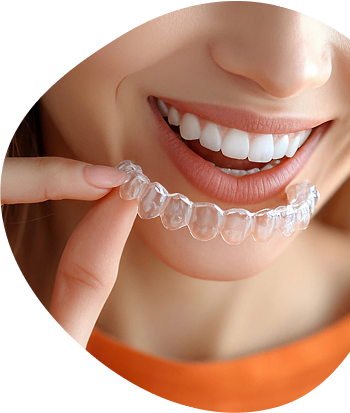Crossroads Family Dentistry specializes in oral pain conditions ranging from chronic headaches to toothaches to nerve-related trigeminal neuralgia. Our experts use advanced, evidence-based prevention, diagnosis, and treatment for all facial pain disorders. Visit our dentist in Colorado Springs if facial pain is a cause for concern. We offer non-intrusive and surgical treatments for your conditions.
Dentists in Colorado Springs
Our Colorado Springs dentist works closely with specialists and primary care doctors, and dentists to diagnose the cause of your facial pain and create the most effective course of treatment for your specific needs. Every patient is different, and at Crossroads Family Dentistry, we make sure each patient gets the specific treatment best for them.
Signs of Facial Pain
Signs that suggest it’s time to contact our dentists in Colorado Springs include:
- Oral lesions
- Facial sparsity
- Head pain
- Face pain
- Neck pain
- Mouth pain
- Sleep disorders
- Jaw Pain (TMJ)
If you experience any of the symptoms above, our specialists are here to help. Often, patients who come to us with the above complaints are diagnosed with one of the following conditions, all of which we treat in our Colorado Springs office:
- TMJ: Temporomandibular disorders include TMJ joint pain and jaw pain, and TMJ joint arthritis.
- Burning Mouth Syndrome: Recurring burning inside the mouth without an underlying cause is known as Burning Mouth Syndrome, and it’s yet another one of the many facial pain conditions we treat.
- Masticatory musculoskeletal pain: Achy jaws and frontal headaches oftentimes indicate MMP.
- Neuropathic Pain: Neuralgias, constant pain in the mouth, other nerve issues
- Neurovascular Pain: Migraines, tension headaches, etc.
Does Facial Pain Concern You?
The American Academy of Pain Medicine estimates that more than 100 million Americans suffer from some form of chronic pain. Approximately 10 million of those people suffer from facial pain and disorders such as TMJ. The average person has experienced pain for about four years, with visits to at least five providers before finally getting proper diagnosis and treatment. Allow our Colorado Springs dentist to minimize the time you spend in pain without the right diagnosis. We’d love to see you in our office for a consultation to discuss your facial pain.










.png)


